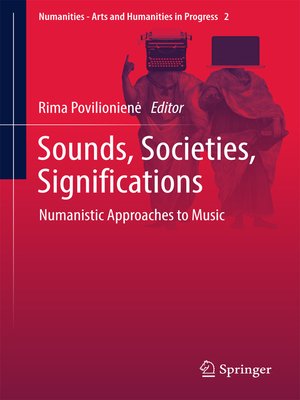Sounds, Societies, Significations
ebook ∣ Numanistic Approaches to Music · Numanities--Arts and Humanities in Progress
By Rima Povilionienė

Sign up to save your library
With an OverDrive account, you can save your favorite libraries for at-a-glance information about availability. Find out more about OverDrive accounts.
Find this title in Libby, the library reading app by OverDrive.



Search for a digital library with this title
Title found at these libraries:
| Library Name | Distance |
|---|---|
| Loading... |
This edited book covers many topics in musicological literature, gathering various approaches to music studies that encapsulate the vivid relation music has to society. It focusses on repertoires and geographical areas that have not previously been well frequented in musicology. As readers will see, music has many roles to play in society. Music can be a generator of social phenomena, or a result of them; it can enhance or activate social actions, or simply co-habit with them. Above all, music has a stable position within society, in that it actively participates in it. Music can either describe or prescribe social aspects; musicians may have a certain position/role in society (e.g., the "popstar" as fashion leader, spokesman for political issues, etc.). Depending on the type of society, music may have a certain "meaning" or "function" (music does not mean the same thing everywhere in the world). Lastly, music can define a society, and it is not uncommon for it to best define a particular historical moment.
Case-studies in this work provide visibility for musical cultures that are rarely exposed in the dominant musicological discourse. Several contributions combine musicological analysis with "insider-musician" points of view. Some essays in the collection address the cultural clash between certain types of music/musicians and the respective institutional counterparts, while certain contributing authors draw on experimental research findings.
Throughout this book we see how musics are socially significant, and - at the same time - that societies are musically significant too. Thus the book will appeal to musicologists, cultural scholars and semioticians, amongst others.







